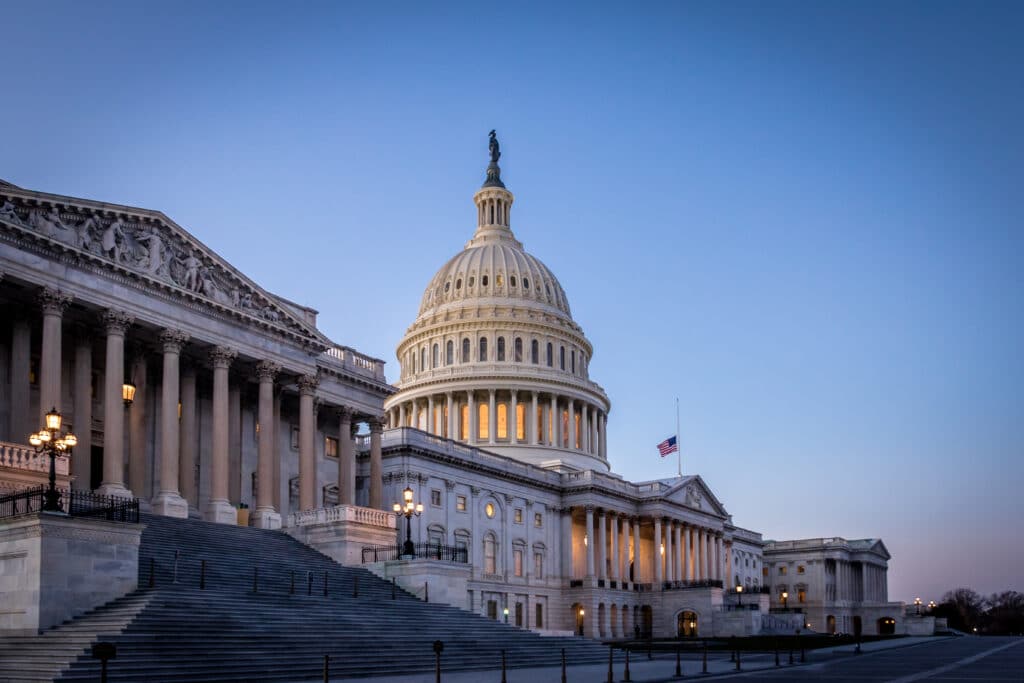Significant legislative progress related to healthcare innovation and human-relevant testing has been underway on Capitol Hill. On May 11, 2022, The House Energy and Commerce Health Subcommittee passed H.R. 7667, the Food and Drug Amendments of 2022. This step paved the way for comments and markup at the full committee meeting, which occurred on May 18, 2022. Now, the legislation moves for consideration by the full House of Representatives.
H.R. 7667 is an important legislation that codifies the user fee agreements with the Food and Drug Administration (FDA) that needs to be authorized by Congress. Notably, H.R. 7667 incorporates additional legislations as riders that Congress has attached to the bill. This includes The FDA Modernization Act of 2021 (H. R. 2565), the Prescription Drug User Fee Act (PDUFA), and the Medical Device User Fee Act (MDUFA). The strong bipartisan support for H.R. 7667 is underscored by the unanimous vote on this legislation both by the subcommittee on Health on May 11, 2022 (30 – 0), and the full Energy and Commerce Committee on May 18, 2022 (55 – 0). As this Act makes its way through the U.S. Congress, the Senate Health, Education, Labor, and Pensions Committee is expected to consider their version in the near future.
The existing drug development paradigm, established by statute in 1938 under the Federal Food, Drug, and Cosmetics Act (FFDCA), requires animal tests to be conducted in all new drug applications, even though 90—95% of drugs that pass animal testing fail when tried in humans. But major developments have been made since 1938 in creating effective test methods that are based on human biology. The FDA Modernization Act of 2021 amends the FFDCA by broadening options for drug development to include modern, innovative, human-relevant test methods. By doing so, this bill will speed up the discovery and lower the costs of new life-saving treatments. As a reminder, the FDA Modernization Act of 2021 was introduced in the House in April 2021, with a similar bill introduced in the Senate a few months later in October 2021.
In addition to the above mentioned FDA user fee legislation and riders (H.R. 7667), the subcommittee advanced several other key legislations including H.R. 5585, the Advanced Research Project Agency-Health (ARPA-H) Act. This Act would authorize the creation of ARPA-H, a new federal entity designed to increase investment in health research, drive transformational innovation, and accelerate the implementation of health breakthroughs. The House Energy and Commerce vote on May 18, 2022 (53 – 3) in favor of H.R. 5585 allows this measure to proceed to the floor of the House of Representatives for consideration.
ARPA-H is an exciting initiative proposed by the Biden administration and included in its budget request to Congress for Fiscal Year 2022. It is modeled after the similarly named Defense Advanced Research Projects Agency (DARPA), which has proven successful in accelerating ground-breaking, out-of-the box technologies for the military. It is expected that ARPA-H would bolster a wide range of advanced technologies seeking to address challenging human health problems. Microphysiological Systems (MPS) (e.g., Organ-chip platforms), 3D bioprinting, artificial intelligence, and advanced biocomputing all being deployed now to better understand human pathophysiology are poised to benefit from this high-tech, $6.5 billion agency with the mission to solve the most complex challenges in human health and disease.
The Center for Contemporary Sciences (CCS) continues to support the work of the House Energy and Commerce Committee and its Health Subcommittee as it enacts policies to promote healthcare innovation and human-relevant testing.
Read more here on of the FDA Modernization Act of 2021 and ARPA-H.

